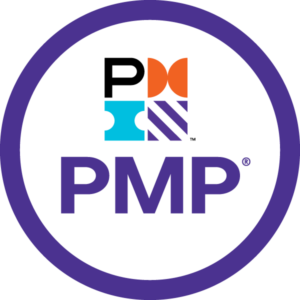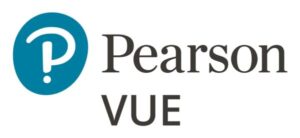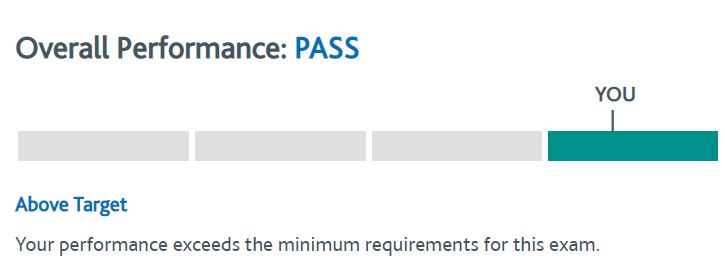The globally recognised and sought-after PMP (Project Management Professional) qualification awarded by the PMI (Project Management Institute) is the highest level of black belt project management certification available on the international market. The certification can be obtained individually, demonstrating that the project manager concerned has a high level of professional experience and structured knowledge of project management. Given its international acceptance and high value, it is now often used as a screening tool by clients, headhunters and recruiters. The number of qualified candidates has been growing steadily and rapidly in recent years, following international trends.

The certification is based on the Guide to the Project Management Body of Knowledge, commonly known as the PMBOK, maintained and edited by PMI, now in its sixth edition.
Many questions are asked before the start of our preparation courses, so in this post we will try to answer all the common questions.
Content
Who can benefit from PMP certification? How much does it cost? What are the prerequisites?
The PMP certification is an individual qualification that increases the value of the project managers concerned.
Many freelance, self-employed project managers apply to our exam preparation programme, who, after passing the exam, can gain an advantage with the qualification and, according to surveys, can earn a higher daily rate for project management.
In addition to individual applicants, many of the certifications are funded by companies whose core activities include project management. In cases where the company is managing larger or even international projects, PMP certified employees can be charged a higher daily rate for projects, and in many cases the client will prefer certified professionals.
The third common group of participants comes from organisations that want to develop internal project management competences based on an internationally recognised methodology, to develop a common methodological language.
The PMP exam is notoriously difficult, but before you can take the test, you must first meet the following prerequisites:
- with a university degree 36 months (60 months for secondary education) project management experience, which can be verified by filling in the project-by-project data sheets required on the international PMI portal,
- and 35 hours of structured project management training, fully validated by participation in our training course.
The exam fee is USD 555 per exam, USD 405 for members. 2 reexamination attempts are allowed, after which the whole process has to be started again. The reexamination fee is USD 275 for members and USD 375 for non-members.
Evidence of prerequisites
Pre-requisites can be filled in by all applicants in an electronic interface on pmi.org after free registration. Project experience can be entered by filling in project data sheets, with a separate sheet for each project. The PMI does not limit or prescribe the number of projects that can be used to validate the experience, sometimes one project is enough, sometimes more than ten are needed.
In addition to the basic data, the data sheets require a start and end date and a project description. A short 1-sentence objective statement is recommended to structure the description, followed by a description of the tasks by process groups/domains. It is important to focus on the project management tasks rather than on the professional work or product, and it should be clear that the task was a project and not a business as usual, operational task.
Importantly, there is no requirement to be employed as an "official" project manager to demonstrate experience, so it doesn't have to be on your business card, PMI sees project managers as a role, and our courses have been successfully passed by engineers, construction, finance, architects, or even developers who have managed projects in addition to their day job.
In addition to the above experience, you will also need to provide the 35 hours of structured project management training hours, the start and end dates of the training and the name of the training organisation.
The number of training hours can be certified by all project management courses with a PMBOK based agenda, for a total of 35 hours of training.

Audit process
The PMI checks the preconditions on a spot-check basis through audits. In our experience, almost half of the participants are selected completely randomly, which is indicated to the PMI after the experience and application has been submitted, but before the payment of the examination fee. If you are not selected for an audit, your application will be considered accepted.
In case of an audit, the completed forms will be returned in pdf format, the following documents must be returned to PMI in a sealed envelope:
- data sheets signed by contact persons
- certificate of attendance or diploma of training
- official documents proving your qualifications (diplomas, certificates)
We have 45 days to complete the above process, so this is the time it takes to send them to PMI. Experience has shown that in the case of an audit, PMI no longer checks the project descriptions but the existence of signatures, and that inadequate descriptions are flagged before the audit.
Due to the timeframe of the above process, in all cases we recommend that you provide a contact person who is easily accessible to avoid the cumbersome involvement of foreign actors.
In all cases, PMI sends feedback on the outcome of the audit process, and in the case of a positive outcome, the exam fee can be paid, after which you have 1 year to pass the exam.
Structure and characteristics of the PMP exam
The PMP Exam syllabus is fully compliant with the latest edition of the Project Management Body of Knowledge (PMBOK), edited and maintained by PMI. At the time of writing, this is the sixth edition and the textbook, including supplementary material summarising the specifics of project activities in an agile environment, is over 900 pages of study material.
According to the official materials published by PMI, the following proportions of process groups appear in the exam:
- Initiating projects, pre-project tasks - Initiation (13%)
- Planning projects - Planning (24%)
- Implementing projects - Execution (31%)
- Project monitoring - Monitoring & controlling (25%)
- Closing projects, phases - Closing (7%)
As of January 2021, the exam will follow a modified syllabus based on the PMBOK 7th edition.
In our experience, there is a large discrepancy between the above ratios and the real exams, which is due to the fact that for some questions it is a matter of perspective which process group to assign them to. What is certain is that there will be questions from all areas in the exam.
The language of the exam is English, and support is available in 13 languages, but Hungarian is not one of them.
According to international PMI surveys, less than 55% of candidates pass the exam for the first time. The reason is that only a small proportion of questions can be answered on the basis of lexical knowledge alone, and the PMI framework needs to be applied in practice in specific situations. We usually tell our participants to adopt the PMI mindset, which is how more than 90% of our participants pass the exam the first time.
The PMP exam consists of 180 multiple-choice questions, with 230 minutes available. Most of the questions are about some kind of situation which is often the case in real life, these are the situations for which the PMI framework is used to select the best solution.
Examination conditions, location and pass rate
At the time of writing, exams can be taken through the Prometric exam centre in BME building Z, Bertalan Lajos u. 2, district XI, several times each week. An important change is that from June, Pearson Vue will take over the exams, which will result in an increase in the number of exam locations and dates. From 2021, all PMI exams can now be taken online, from home or even from work, following the expected rules.
You can apply for a specific exam date by using the unique code you receive after successful application/audit.
The examination conditions are very strict: before entering the testing room, all personal belongings must be locked in a secured locker, and only the key to this locker is allowed in the room. This is no joke: you can't even bring your own tissues, if you need it, the test venue will provide it for you.
Before entering, you must also pass a metal detector check, turn your pockets inside out and lift up your trouser legs to show that you are not carrying any prohibited items. We will not be much more comfortable in the examination room: we will be under constant surveillance by the exam proctor through a glass wall, and directly above our examination station we will also be under constant camera surveillance, which will record the entire duration of our test.

You will be given blank paper, a pen and a calculator, nothing else is needed.
You are free to take breaks, but the timer does not stop, so you need to be aware of this too.
The exam software is easy to use and works well, with a 15-minute demo before the exam.
The difficulty of the exam is that the PMI does not publish the pass mark or the percentage. Currently, we estimate the percentage of correct answers required to pass the exam to be between 62% and 75%, which is most likely calculated by the system based on the weights assigned to the questions. Our experience has shown that achieving a stable pass rate of 75-80% or above when practicing exam questions at home should not be a problem in the real exam. The result of the exam will be revealed on the spot, do not expect insight or a specific score.
At the end of the exam, you will receive the following assessment for the whole exam and for process groups:
- Needs improvement - worst category, our knowledge gaps are significant;
- Below target - unsuccessful category, our performance was not sufficient to pass;
- Target - we have passed the exam, we have a good level of PMBOK knowledge;
- Above target - we passed the exam with excellent results.

Maintenance:
The PMP qualification is valid for 3 years after successful completion of the exam and can be renewed by accumulating 60 PDUs (Professional Development Units) every 3-year cycle.
PDUs can be collected from 2 sources, min. 35 PDUs with training (classroom or e-learning, reading and processing books, podcasts, conferences), max 25 PDUs Knowledge sharing (lecturing, methodological development, project management).
For the number of training hours, the development of the following 3 skills min. 8-8 PDUs, which can be recorded electronically in a self-reported manner:
- Techical skills - project management methodologies and tools
- Leadership skills - leadership skills
- Strategic business management skills - industry skills related to project management
Maintenance after the exam is no longer a challenge, in theory PMI can audit PDUs uploaded to pmi.org, but we have not seen an example of this in the last 8 years. One thing to bear in mind is not to try to collect PDUs at the last minute, as this can typically be achieved through very expensive trainings.
The preparation
Preparation is not a simple process. The exam is very difficult, so you need serious, reliable knowledge. Of course, it is possible to take the exam without outside help, but in this case you will need to do a lot of extra reading and work.
In our experience, a solid exam routine is needed in addition to the lexical knowledge, and this will determine our results. We also need to learn the little tricks that come with the language of the task, and there are recurring tricky topics to look out for.
Candidates are advised that, in addition to learning the course material, they should have at least. 1500-2000 test questions as practice.
If you want to improve your preparation time and the likelihood of passing the exam, our exam preparation course can help you do this.
Our expert has the most PMI certifications in Hungary, with successful CAPM, PMP, PMI-PBA and PMI-ACP exam experience, he is a PMI specialist who can pass on the tricks to avoid common mistakes and pass the exam.
During our 3.5-day classroom programme, you will have the opportunity to solve exam simulations and practice a large number of test questions, as well as to practice additional study materials and around 3000 test questions through our e-learning platform.
Not only does this justify 35 hours of training, but our feedback shows that over 90% of our participants pass their first exam.
We support our participants throughout their preparation and are available for free consultations after the programme.
We continuously measure the performance of our participants, so we have up-to-date information on current trends in the exam.
Tips for a successful exam
- Don't organise any other activities, work or tasks for the day of the exam, have a good night's sleep.
- Due to the length and fatigue of the exam, we recommend that you wear comfortable clothing.
- Before the exam, either at home or on the way to the exam venue, answer 10-20 easy questions.
- You will have 15 minutes to familiarise yourself with the exam software. Make sure you use this time to relax.
- After the first exercise, write down the formulas needed for various calculations.
- After reading the questions, do not immediately start looking for the correct answer, but first try to answer the question yourself. Then read through the answer choices and choose the one that is closest to your own answer.
- Many questions will not be answered perfectly or fully. In many cases, we will have to select the best possible, but not perfect, answer from a range of possible answers. There is a correct answer to every question (especially according to PMI)!
- If you're unsure about something, use the small flag icon and move on. You may find a partial answer to the marked question in later questions, or you may remember the correct answer later in the exam. You can always navigate back to the marked question and mark the answer you think is correct.
- If you're on time, you should take a 5-minute break around the middle of the exam. Go outside for a drink of water, wash the back of your head, stretch your legs.
- Take your time, if you can finish faster use the remaining time to check the unclear answers you have marked, this will earn you lots of points!
- Pay attention to the reverse questions, in many cases questions asking which is not a good solution.
- With a deep knowledge of the subject matter, 2 solutions can usually be ruled out, and between the remaining 2, a good answer can typically be given along the lines of PMI thinking.

 Designabc
Designabc